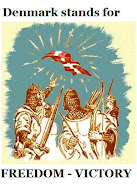The left liberals, the moonbats and their utter intellectual bankruptcy mounting to self loathing excesses of and with evil.
By David Solway in FrontPageMagazine.com
Academic Martha Nussbaum has been in the news of late with her utopian rhapsody of the  brotherhood of man and the “community of human beings in the entire world,” dismissing the concept of borders as arbitrary and patriotism as injurious to the soul. Thankfully, President Obama has not gone that far; nevertheless, he is determined to talk to his sworn enemies on the assumption that we all have common interests and share similar fundamental goals. Such a program bespeaks the resurgence of a political romanticism wedded to motives rather than consequences, unachievable ideals rather than practical values—a position that has been largely endorsed by the ideology of the contemporary liberal-left.
brotherhood of man and the “community of human beings in the entire world,” dismissing the concept of borders as arbitrary and patriotism as injurious to the soul. Thankfully, President Obama has not gone that far; nevertheless, he is determined to talk to his sworn enemies on the assumption that we all have common interests and share similar fundamental goals. Such a program bespeaks the resurgence of a political romanticism wedded to motives rather than consequences, unachievable ideals rather than practical values—a position that has been largely endorsed by the ideology of the contemporary liberal-left.
The root problem with the liberal mentality is that it has no viable theory of evil and little conception of its tangible presence in human affairs. However we may wish to define it—as a privation of being, the effect of an original sin, the condition of the natural world, a predilection for violence and domination inscribed in the gene plasm—evil is a reality, and it is in the world as it is in us.
To quote Edgar Allan Poe, there is an “imp of the perverse” who lives inside us, a kind of mitochondrial core of resistance which no amount of social engineering or political suavity can break down completely. It has been with us since Adam or the first hominid and will be with us until Nietzsche’s “last man” or the nuclear mutant. The liberal-democratic ethos is incapable of coming to terms with our postlapsarian nature, instead seeing humanity as potentially one big family to be realized in the dawning of a new millenarian age.
We may all be members of “one family” in terms of our biology and the neurological structure of the brain—we all develop cultures, we all use language, we all employ basic mathematical categories. But we are manifestly not “one family” in terms of our personal desires, canons of belief, moral and religious doctrines and political worldviews. More likely, several feuding families, a world of Hatfields and McCoys.
This does not mean that we should refuse to work against our own worst impulses; quite the contrary, these should be candidly acknowledged and met on the plane of realistic expectation. But in so doing we must not succumb to the illusion of ultimate perfectability, the possibility of a sea change in the structure of the human psyche or the belief that people necessarily operate in what we conceive to be their own best interests.
Like the natural world, the political realm is subject to a law of conflict which we may at times be able to temper but which we cannot circumvent or elude. Human nature will not appreciably change for all the grand and noble ideas to which we have paid lip service, and which are more likely to lead to the kind of brotherly love for which we remember Cain.
The conviction that we all share a mutual hankering for concord is the liberal version of the Rapture. In contending against a real enemy who has blood, infiltration and conquest in mind, liberals are at a loss. Let us sit down together, let us “talk” without preconditions to those who are dedicated to our complete destruction, let us assure them of our good will and our sympathetic understanding of their resentment and distress, let us offer them no end of incentives. Surely we will arrive at an accommodation, and disquietude will be banished to the history books—the very same history books, obviously unread, in which such outreach to thugs, rogues and moral degenerates has led inevitably to disaster.
The belief that “talking” can solve intractable problems with irrational foes is the panacea of losers or the hope of the desperate. Talk, in such situations, is just talk. In a recent video, Taliban kidnappers are shown conversing with their latest hostage; then they behead him.
The international arena is not just a talking shop and, besides, no one listens to a perceived  weakling. As William James, a self-admitted pacifist and proto-socialist, wrote in a 1906 essay entitled “The Moral Equivalent of War”: “In the more or less socialistic future toward which mankind seems to be drifting we must still subject ourselves collectively to those severities which answer to our real position upon this only partly hospitable globe…Martial virtues must be the enduring cement…unless, indeed, we wish for dangerous reactions against commonwealths fit only for contempt...”
weakling. As William James, a self-admitted pacifist and proto-socialist, wrote in a 1906 essay entitled “The Moral Equivalent of War”: “In the more or less socialistic future toward which mankind seems to be drifting we must still subject ourselves collectively to those severities which answer to our real position upon this only partly hospitable globe…Martial virtues must be the enduring cement…unless, indeed, we wish for dangerous reactions against commonwealths fit only for contempt...”
George Orwell, who in an anti-capitalist dudgeon initially rejected the summons to war against Germany, took a page out of James’ essay when he later wrote in “My Country Right or Left” that there could be “no substitute for patriotism and the military virtues…however little the boiled rabbits of the Left may like them.” Of course, some will claim that Conscientious Objection is the higher patriotism. Today, however, is no time for the “summer soldier and sunshine patriot” whom Thomas Paine deplored in The Crisis. The geopolitical climate no longer allows for that.
A certain intellectual abstemiousness in these matters promises far better results than a melting benevolism. Peace, it has been justly said, is made with friends and not with enemies—or, in extensio, with enemies who have been defeated or have at least taken the measure of a stalwart adversary. The clash of interests and the instinct for aggression are inevitable; barring the complete regeneration of the species and a new dispensation of nature, they will not go into remission anytime soon. They cannot be magicked away by credal incantations or visionary assumptions.
The antidote to liberalism is not, as many writers and thinkers of the past have argued, authoritative control, but political humility—the conservative recognition that the world is insolubly complex, that topdown intervention in the social, political and economic life of the nation is often counterproductive, and that one must not attribute to one’s fellow man, and especially to one’s enemies, an a priori commitment to communal benefit or reasonable accommodation.
Broadly speaking, the conservative project is what is known in philosophy as an “axiological” ethic, in which the determination of the rightness of an action is contingent upon the value or goodness of that action as embodied in results, however deferred. It is concerned with consequences. The liberal ethic on the other hand is “deontological,” that is, it holds that an action may be considered right if it conforms to a prior set of values even if it does not bring as much good into the world as some alternative action may have. It is concerned with motives.
This is why “the liberal mind” seems incapable of learning from past mistakes or failed initiatives, why predictions that have not come to pass do not prevent it from making similar predictions in the future, and why Neville Chamberlains crop up in every generation. From its perspective, the hurdle to peace and understanding is the result of miscommunication. The liberal-left has taken aboard wholesale the trendy theories of one its most revered mentors, German social philosopher Jurgen Habermas, who argued, under the lemmas of “communicative action” and “explicative discourses,” that world conflicts stem from poor communication modes. Accordingly, the generic Left says talk, unperturbed by the fact that its enemies say fire!
One thinks, in this connection, of the film Cool Hand Luke where the naïve protagonist tells his pursuers, “What we got here is a failure to communicate,” and is immediately shot.
----------------------------------------------------------------------------------------
David Solway is the award-winning author of over twenty-five books of poetry, criticism, educational theory, and travel. He is a contributor to magazines as varied as the Atlantic, the Sewanee Review, Books in Canada, and the Partisan Review. His most recent book is The Big Lie: On Terror, Antisemitism, and Identity.
Friday, February 20, 2009
Liberalism and Evil
Posted by
Rolf Krake
at
Friday, February 20, 2009
![]()
Subscribe to:
Post Comments (Atom)
































No comments:
Post a Comment